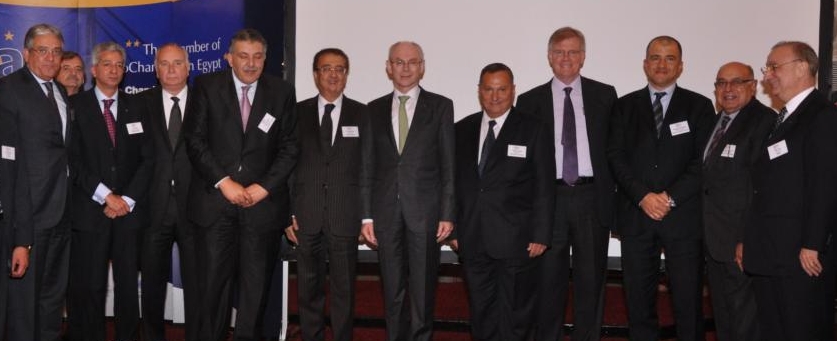Minister of Housing Mostafa Madbouly said Egyptian construction companies will begin implementation work on the first residential neighbourhood in the New Administrative Capital before April after completing procedures related to the proposal of the project’s infrastructure.
The neighbourhood will include 30,000 housing units as the initial step in the government’s development of 10,500 acres for residential housing in the New Administrative Capital.
Madbouly said the New Administrative Capital is on an area of 190,000 acres and will have five other phases. The first phase includes 30,000 acres, 10,500 of which the government already began to develop and will be completed in three years.
The government completed the blueprint of the entire New Administrative Capital and also finalised the detailed plan of developing 10,500 acres as a prelude to propose them to real estate developers before the end of this year.
Madbouly said a number of Chinese companies will start establishing a governmental neighbourhood in the upcoming period. The neighbourhood will include 14 buildings and a convention centre. Chinese companies will oversee the construction of the governmental buildings, while Egyptian companies will execute the housing projects.
Chinese companies will finance the construction of those projects over which they are in control of implementation. Additionally, they will employ Egyptian companies to implement the construction.
Amdbouly said that the state will finish establishing 450,000 social housing units in a year from now. Egyptian construction companies will implement 90-95% of the New Administrative Capital.
According to Minister of Transport Saad Al-Geioushy, the volume of expected investments in the transport sector until 2030 amounts to about EGP 760bn, EGP 112m of which are in the medium-term. Meetings with about 40 ambassadors recently took place to demonstrate investment opportunities available in the transport sector. There is a Chinese offer to implement the sixth line of the Cairo Metro and an agreement with Japan was signed to implement the fifth line, according to Al-Geioushy.
The ministry formed a committee of 52 experts, including 30 from outside the ministry, to study the problems of the transport sector and set the needed solutions to develop this sector. The committee included experts from all disciplines: transport, traffic, economy, banking, and legal, and representatives of the government. The committee worked for three and a half months. In the last week, it finished developing a plan to develop this sector.
According to Al-Geioushy, this plan includes quick solutions to be implemented within three to four months, including maintenance of roads and transport means, especially railways, as well as a medium and long-term plan to develop the sector completely.
According to Minister of Military Production Mohamed Al-Assar, the ministry plays a large role in the implementation of national projects and at the same time it does not ignore its real role in military production.
The ministry will conduct a study to create a containers factory. It is also involved in the project of reclamation of 1.5m acres and in the establishment of wells that are powered by solar energy in Toshka and west of Minya. The ministry will also launch power plants and water and sanitation plants in collaboration with the Ministry of Housing, in addition to providing solar cells with a capacity factor of 50MW to contribute to the implementation of major projects.
According to Minister of Local Development Ahmed Zaki Badr, the size of funds granted by banks to small and medium enterprises (SMEs) amounted to about EGP 1bn as part of the “Your Project” programme offered by the ministry to support youth. These funds contributed to the creation of about 20,000 projects and about 99% of the enterprises that obtained these loans pay their instalments regularly.
Governors of individual governorates were granted the power to allocate lands for free to investors and other lands at low prices to citizens in order to facilitate investment.
According to Chairman of the Special Council for Economic Development affiliated to the Presidency, Abla Abdel Latif, the construction sector is one of the most important economic sectors in Egypt, especially since it serves a large number of other sectors.
The council is working in collaboration with the Ministry of Local Development on a project called “Your Work Next to Your Home”. The project aims to create jobs in governorates at small and medium factories to be suitable for the governorates’ capabilities and to reduce labour migration to metropolitan areas.
Latif said the role of the Special Council for Economic Development is to set an integrated developmental framework for Egypt by planning what will come after the current national projects.
Achieving economic efficiency and social justice is the council’s main objective through national projects, in parallel with benefiting from resources and small projects that serve people who live outside the major governorates and cities.
Head of the Egyptian Federation for Construction and Building Contractors Hassan Abdel Aziz said that the government recently paid a large portion of the contractors’ dues. Moreover, it solved the problem of diesel fuel and overcame security and political problems that previously hindered construction companies.
Because of the negative circumstances in the past years, the number of construction companies decreased to about 14,000 companies, compared to when it was more than 20,000. Coinciding with ending the political, security and financial problems, about 2,000 companies in 2014 and 4,000 companies in 2015 recommenced their operations, which increased the number of companies to more than 20,000.
Despite this development, Abdel Aziz said construction companies are still suffering some problems related to insurance and compensation. Moreover, they object to the law of tenders and auctions, law of balanced contract, and law that will instate the value added tax (VAT).




